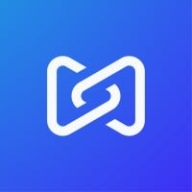

Klocwork and GitLab are key players in the software development tools category. GitLab appears to have the upper hand with its comprehensive features and strong value proposition often highlighted in user reviews.
Features: Klocwork is specialized in static code analysis, enabling early detection of software defects, providing a powerful code review function, and offering a focused approach to security vulnerabilities. GitLab covers a broad spectrum of the DevOps lifecycle, offering CI/CD pipelines, integrated collaboration tools, and project management features. This all-in-one approach often sways user preference toward GitLab.
Room for Improvement: Klocwork could enhance integration capabilities, improve reporting functions, and streamline its user interface to increase efficiency. GitLab users often request more precise code analysis, improved scalability for larger projects, and enhanced performance for repositories with high activity levels.
Ease of Deployment and Customer Service: Klocwork involves a more traditional setup process, which few users see as time-consuming but supported by responsive customer service. GitLab aligns well with cloud environments, offers a seamless deployment process, and receives positive feedback for its efficient customer service.
Pricing and ROI: Klocwork's setup cost tends to be higher, and ROI is considered justified mainly in niche applications. GitLab presents competitive pricing with widespread functionality, leading to a better ROI perception and making it a favored option for diverse projects.
Migrating to GitLab is bringing time-saving benefits, and everything is easier to automate.
We have saved time significantly, reducing deployment time from four hours to five minutes per deployment.
The main ROI factors include efficiency and how we meet compliance standards for various automotive requirements.
We have rarely needed to escalate issues to technical support since GitLab usually runs seamlessly.
I have interacted with architects for some advice during the implementation, and they were prompt in their response.
I have had meetings where they taught me, explained things, and provided guidance for starting from scratch.
The customer support team is very responsive, proactive, and engages in conversations to ensure our needs are met.
The issue is not about the knowledge of the support but about the prioritization of the tickets they handle.
During the initial phase, there was a need for follow-ups and clarifications.
It has all the features required for our coding and deployment needs, which makes it scalable to our changing requirements.
We're transitioning to OpenShift for future scalability with increased user numbers.
For scaling, other deployment options from GitLab's side need to be adopted.
Klocwork supports our scalability needs without issues, even as project volumes increase.
The program-to-program enablement is scalable.
I have not encountered any performance or stability issues with GitLab so far.
The updates are frequent and demanding, happening at least once a week due to security reasons.
We raised a request with GitLab support, but they were unable to help because they could not find the root cause of what went wrong.
Installation is easy, and the solution is stable.
It would be beneficial to have a user-friendly interface for setting up these configurations, instead of just writing YAML files.
It is essential to conduct proper testing, such as unit tests and code coverage, within the SDLC pipelines.
GitLab can improve its user interface to make conflict resolution more user-friendly.
There are too many warnings, and it requires expertise to determine the correct category for them.
Klocwork sometimes provides too many additional warnings which require expertise to manage.
We would like Klocwork to connect to Git and notify developers of issues tied to specific commits.
Even when working in other small organizations, we opted for GitLab as it was cost-efficient.
The pricing of GitLab is reasonable, aligning with what I consider to be average compared to competitors.
The price is high, and it limits user accessibility.
It is less expensive than Coverity.
The solution is not very cheap, however, it is less expensive than Coverity.
Klocwork was competitively priced, making it a cost-effective solution for us.
As we implement automated testing and DevSecOps, it speeds up the process by forty to sixty percent.
The Ultimate version offers enhanced features for security scanning through DAST and SAST analysis, which have greatly benefitted our project workflow.
By integrating GitLab as a DevOps platform, we have enhanced agility, improved our time to market, and different teams can work collaboratively on various projects.
The most valuable feature of Klocwork is the static analysis tools, which help identify potential security threats and errors.
Its integration with the CI/CD pipeline has helped streamline the software development process.
It takes just half a day to set up.
| Product | Market Share (%) |
|---|---|
| GitLab | 2.3% |
| Klocwork | 1.4% |
| Other | 96.3% |

| Company Size | Count |
|---|---|
| Small Business | 36 |
| Midsize Enterprise | 10 |
| Large Enterprise | 43 |
| Company Size | Count |
|---|---|
| Small Business | 12 |
| Midsize Enterprise | 2 |
| Large Enterprise | 12 |
GitLab offers a secure and user-friendly platform for CI/CD pipeline management, code repository control, and collaboration, enhancing development speed and efficiency. It facilitates automation with extensive customization and tool integration, ideal for DevOps processes.
GitLab supports source code management, version control, and collaborative development. It's frequently used in CI/CD processes to automate builds and deployments while integrating DevOps practices. GitLab allows companies to manage repositories, automate pipelines, conduct code reviews, and maintain development lifecycles. The platform supports infrastructure and configuration management, enabling efficient code collaboration, deployment automation, and comprehensive repository handling. Many organizations commit and deploy developed code using GitLab's capabilities.
What are GitLab's most valuable features?In specific industries, GitLab serves as a backbone for source code management and CI/CD implementation. Companies leverage its capabilities for infrastructure management and deployment automation, thus streamlining project delivery timelines. Its ability to handle configuration management and code repositories effectively aids in maintaining development lifecycles, making it a preferred choice for organizations committed to enhancing their DevOps practices.
Klocwork detects security, safety, and reliability issues in real-time by using this static code analysis toolkit that works alongside developers, finding issues as early as possible, and integrates with teams, supporting continuous integration and actionable reporting.
We monitor all Application Security Tools reviews to prevent fraudulent reviews and keep review quality high. We do not post reviews by company employees or direct competitors. We validate each review for authenticity via cross-reference with LinkedIn, and personal follow-up with the reviewer when necessary.